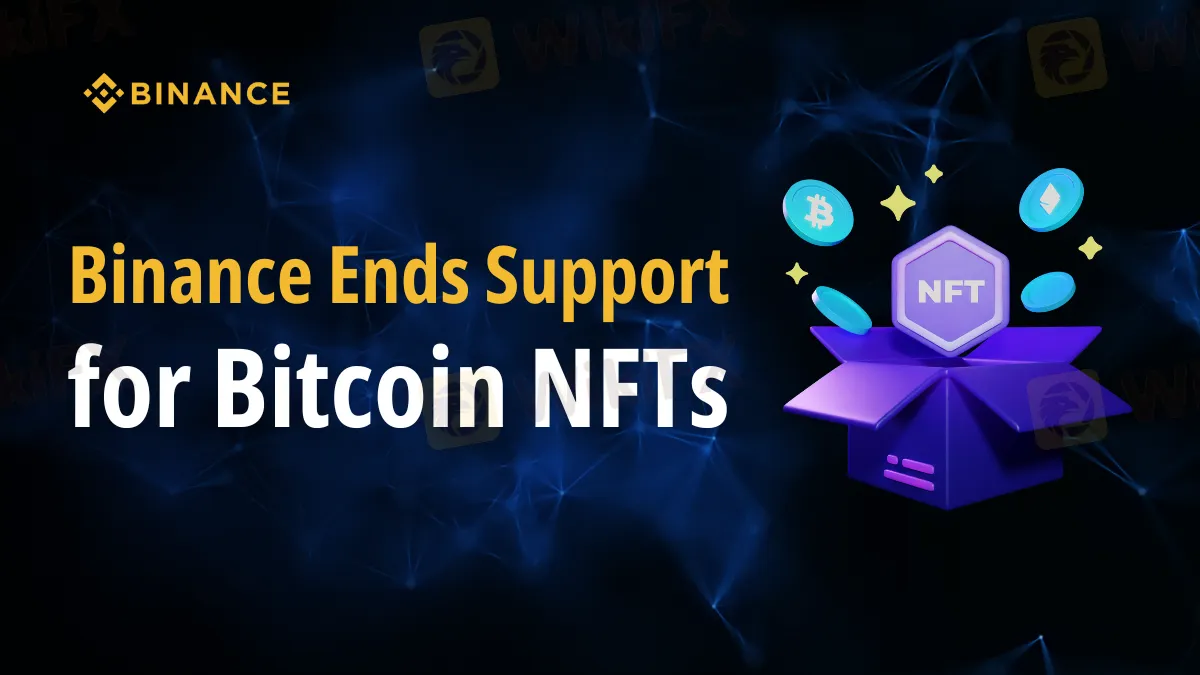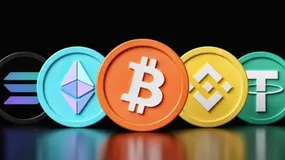Abstract:Binance ceases support for Bitcoin NFTs, marking a strategic pivot within the crypto industry. The move, signaling a shift in digital asset dynamics, impacts users and the NFT ecosystem.

Binance, a leading cryptocurrency exchange on a worldwide scale, has announced that it would no longer support Bitcoin NFTs. This decision was made within a year after the platform's enthusiastic adoption of Bitcoin-based non-fungible tokens (NFTs), indicating shifts in dynamics and preferences within the digital asset industry. Users and the NFT ecosystem may find a comprehensive statement describing the timetable in Binance's most recent blog post.
Starting on April 10, all airdrops, benefits, and utilities associated with Bitcoin NFTs will progressively be disabled. Coinbase will stop selling and depositing Bitcoin non-fungible tokens (NFTs) at 6 a.m. UTC on April 18. The Binance website will not let people buy, bid on, or add these non-fungible tokens (NFTs). At this stage, the platform will automatically cancel all outstanding orders in response to these changes. Binance has advised its customers to promptly remove their Bitcoin NFTs before the midnight UTC deadline on May 18, to prevent any possible loss of assets or access.
This change has a particular impact on the Runestone NFTs, which are Bitcoin-based. Binance took the initiative to inform those who had Runestone NFTs, particularly those who obtained them via airdrops, that they were required to remove their assets by April 10. The particular reference emphasizes the platform's prompt transition away from Bitcoin NFTs and implies the termination of the promotional efforts and utility advantages formerly linked to these digital assets.

Binance's use of Bitcoin NFTs signals a significant change in operations and marks a big achievement in the advancement of NFTs and their incorporation into the Bitcoin system. Casey Rodarmor's Bitcoin Ordinals protocol, introduced in January 2023, has significantly transformed the integration of NFTs, BRC-20 tokens, and other data directly into the Bitcoin blockchain. The use of satoshis, the most diminutive individual unit of bitcoin, in this innovation facilitated the integration of diverse digital assets, hence facilitating the seamless identification and exchange of each item.
The emergence of Ordinals and the following increase in Bitcoin-based non-fungible tokens (NFTs), such as the NodeMonkes collection, highlighted a growing fascination with using Bitcoin's blockchain for purposes beyond just financial transactions. The market valuation of the NodeMonkes collection saw a significant increase, surpassing well-established businesses such as the Bored Ape Yacht Club. This development highlights the potential and enthusiasm around Bitcoin non-fungible tokens (NFTs).
One could interpret Binance's decision to withdraw from Bitcoin NFTs as a response to the operational challenges faced and a more thorough strategic reorientation. The platform is making an effort to enhance its products, and this change could be a part of a larger trend in the industry where exchanges and platforms are reevaluating the digital assets they support and the resources they allocate to each one based on user needs, network capabilities, and strategic goals.
The news signifies a significant stage of transformation for both the NFT community and Binance users. With the advancement of the digital asset ecosystem, there is a potential shift in focus towards non-fungible tokens (NFTs) and digital tokens that are more ecologically sustainable and technologically compatible. Concurrently, Binance's choice prompts debates on the future of non-fungible tokens (NFTs) on the Bitcoin blockchain and the practical consequences of including various types of digital content on this innovative cryptocurrency platform.











